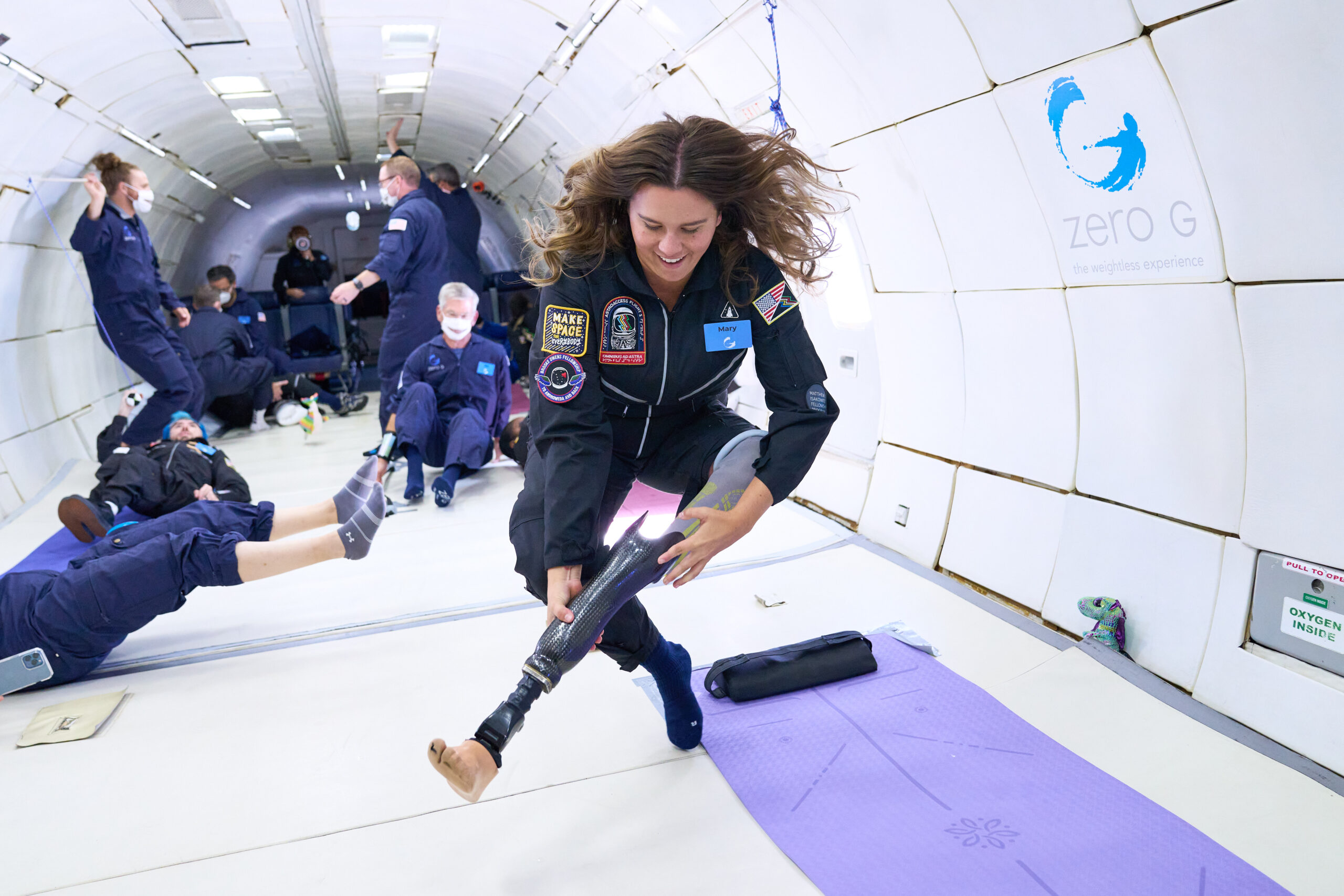

Image Description: Mary Cooper, AstroAccess Ambassador, takes of her prosthetic leg while floating in zero gravity. Credit: Al Powers / Zero-G.
If we can make space accessible, we can make any space accessible.
AstroAccess is a project dedicated to promoting disability inclusion in human space exploration by paving the way for disabled astronauts. Since its founding in 2021, AstroAccess has conducted five microgravity missions in which disabled scientists, veterans, students, athletes, and artists perform demonstrations onboard parabolic flights with the Zero Gravity Corporation, as the first step in a progression toward flying a diverse range of people to space. These "AstroAccess Ambassadors" experience weightlessness, test microgravity accessibility tools, and investigate how physical environments onboard spacecraft can be designed so that all astronauts, regardless of disability on Earth, can work and thrive in space. AstroAccess Ambassadors not only participate in a parabolic flight but also use their platform to act as public advocates for global disability access in STEM.
AstroAccess represents a vast network of 30+ partners organizations who play key roles in the ambassador selection and microgravity flight operations design process. This includes the Massachusetts Association for the Blind and Visually Impaired, MIT Media Lab, Gallaudet University, the Space Frontier Foundation, the LightHouse for the Blind, Stanford Medicine Abilities Coalition, the UN Royal Academy of Science International Trust, and Disabled American Veterans. The work AstroAccess does has received international recognition through the over 100 media outlets, including the New York Times, BBC, Scientific American, and most recently Good Morning America, which aired national coverage of our December 2022 AstroAccess flight.
Visit AstroAccess.org for more information!
